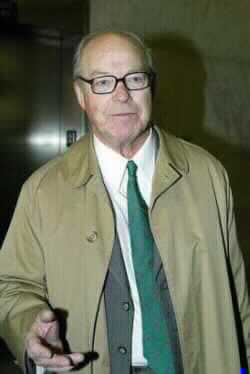Russia indirectly criticized the United States on Monday for dismissing Iraq's weapons declaration as deficient even before U.N. inspectors give their assessment of the 12,000-page document. Bush administration officials have described the Iraqi declaration as woefully short of facts and have raised the possibility of the use of force against Saddam Hussein to make him disarm.
Chief U.N. inspector Hans Blix and Mohamed ElBaradei, head of the U.N. nuclear control agency, are to brief the U.N. Security Council on Thursday on their preliminary views of the mammoth document.
"It is not for Russia or for anybody else to make any judgments until we hear from UNMOVIC and IAEA," said Russia's U.N. Ambassador Sergey Lavrov, using the initials of the U.N. Monitoring, Verification and Inspection Commission which Blix heads and the International Atomic Energy Agency.
Since the five permanent council members received the uncensored Iraqi declaration a week ago, only the United States has commented on it. Russia, China, France and Britain have remained silent.
Secretary of State Colin Powell said Monday that U.S. skepticism that Saddam would come clean about Iraq's weapons programs "is well-founded," adding that using force to disarm the Iraqi leader remains an option.
Last Friday, State Department spokesman Richard Boucher said: "We know that Iraq has weapons of mass destruction and has programs to create more."
Iraq has repeatedly denied that it has any weapons of mass destruction.
Lavrov appeared to be putting the United States on notice that Moscow at least will give priority to the views of Blix and ElBaradei - not Washington - in determining whether Iraq is cooperating with U.N. weapons inspectors.
"If something happens which he (Blix) believes is a violation, he comes to the Security Council. There is no other way and everybody knows it," said Lavrov, whose country is Iraq's closest ally on the 15-member council.
Resolution 1441, adopted Nov. 8, offered Iraq a final chance to cooperate with inspectors. Under its terms, false statements or omissions in Iraq's weapons declaration and a failure to comply with inspections would constitute a "material breach" of Iraq's obligations and be reported to the Security Council for assessment.
Such a breach could be enough for Washington to argue that military action is the only way to force Iraqi compliance.
Blix said Monday that U.N. experts were still going through the declaration.
"I will let our experts tell us what there is in it," he said. "They are going through it now and will compare it with what we knew in the past."
One council diplomat said some sections in Arabic were proving difficult to understand, and a full analysis is likely to take some time.
Last Thursday, Blix asked Iraq to provide a list of all personnel currently and formerly associated with its chemical, biological and ballistic missile programs by the end of the month. Under Resolution 1441, U.N. inspectors have the right to interview any Iraqi inside or outside the country, with or without the presence of Iraqi observers.
Gen. Hossam Mohammed Amin, head of Iraq's National Monitoring Directorate, said on Lebanese television Monday that Baghdad would comply with Blix's request.
The United States believes interviews - especially if conducted outside the country - could provide crucial information about secret Iraqi plans to build weapons of mass destruction.
But Blix has cited practical difficulties in taking Iraqis and their families outside the country such as whether the Iraqis would be allowed to return, or what would happen if they decided to seek refugee status or asylum.
PHOTO CAPTION
Chief U.N. weapons inspector Hans Blix arrives at United Nations Headquarters Monday, Dec. 16, 2002. Monday was the third consecutive day U.N. inspectors were at al-Qa'qaa, near the town of al-Tuwaitha, Iraq, about 15 miles southeast of Baghdad. Monday was the third consecutive day U.N. inspectors were at al-Qa'qaa, near the town of al-Tuwaitha, about 15 miles southeast of Baghdad. The United Nations offered few details about Monday's inspection at al-Qa'qaa (AP Photo/David Kar
- Author:
& News Agencies - Section:
WORLD HEADLINES


 Home
Home Discover Islam
Discover Islam Quran Recitations
Quran Recitations Lectures
Lectures
 Fatwa
Fatwa Articles
Articles Fiqh
Fiqh E-Books
E-Books Boys & Girls
Boys & Girls  Hajj Rulings
Hajj Rulings Hajj Fatwas
Hajj Fatwas














